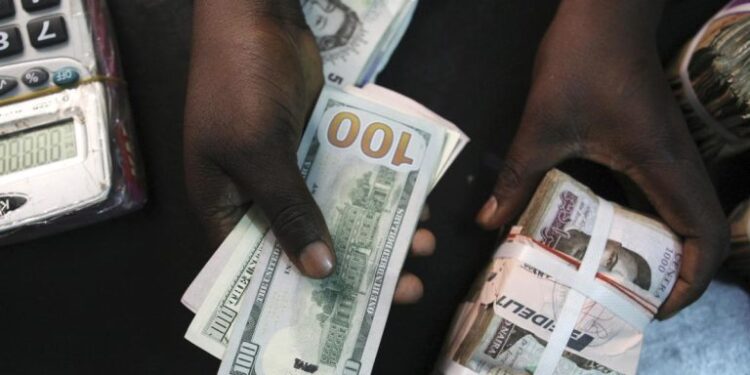What is the Dollar to Naira exchange rate on the black market, also known as the parallel market (Aboki fx)?
See the black market Dollar to Naira exchange rate for 14th July below. You can trade your dollar for Naira at these rates.
How much is a dollar to naira today in the black market?
Dollar to Naira exchange rate today at the black market (Aboki dollar rate):
In Lagos Parallel Market (Black Market), Bureau De Change (BDC) operators are buying dollars for ₦1570 and selling at ₦1575 on Sunday, 14th July 2024.
Please note that the Central Bank of Nigeria (CBN) does not recognize the parallel market (black market). Individuals seeking to engage in Forex are directed to approach their respective banks.
Dollar to Naira Black Market Rate Today
Dollar to Naira (USD to NGN) | Black Market Exchange Rate Today
| Buying Rate | ₦1570 |
| Selling Rate | ₦1575 |
Dollar to Naira CBN Rate Today
Dollar to Naira (USD to NGN) | CBN Rate Today
| Buying Rate | ₦1559 |
| Selling Rate | ₦1560 |
Please note that the rates at which you buy or sell forex may differ from those captured in this article as prices vary.
Interest Rate Will Come Down Soon – CBN Governor, Cardoso
The Governor of the Central Bank of Nigeria (CBN), Olayemi Cardoso, has assured Nigerians and private sector investors that the interest rate, currently at 30%, will soon be reduced.
Cardoso clarified that the current interest rate was set by the Monetary Policy Committee (MPC) of the CBN, not by him personally.
Speaking at the Business CEO Forum in Lagos, he emphasized that the MPC bases its decisions on data, not emotions.
This clarification comes amidst criticism from prominent figures such as the Chairman of Dangote Group, Aliko Dangote, and former Labour Party presidential candidate, Peter Obi.
At the National Manufacturing Policy Summit organized by the Manufacturers Association of Nigeria (MAN), Dangote stated, “Right now, at 30%, there is no way anybody can create jobs.” He added that the current interest rate is detrimental to Nigeria’s economic growth.
Peter Obi also criticized the 30 percent interest rate, arguing that it would be fatal for Micro, Small, and Medium Enterprises (MSMEs). He pointed out that no private employer would take a loan at such a high rate, especially when energy costs are solely borne by the company.











